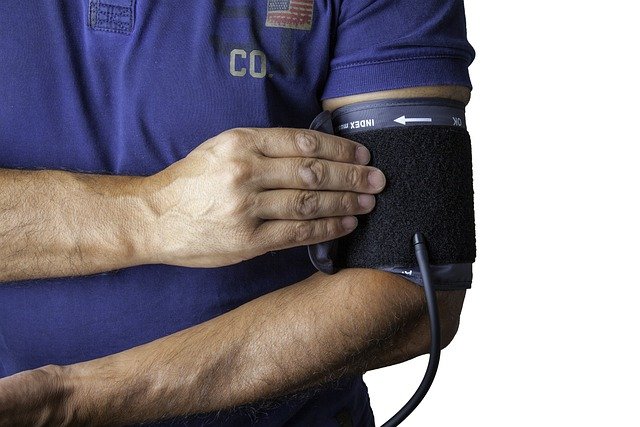Kidney Health Warning Signs – Don’t Miss These Red Flags
Kidney problems often develop quietly, with subtle signs that are easy to miss. But catching these early warnings could help prevent serious complications. Discover what your body might be trying to tell you and why timely attention matters more than ever.

What Are The Early Symptoms of Kidney Issues?
Recognizing kidney problems in their initial stages can significantly improve treatment outcomes. These early warning signs often appear gradually and may seem unrelated to kidney function:
• Persistent fatigue and weakness that doesn’t improve with rest
• Changes in urination patterns, including frequency or color
• Swelling in ankles, feet, hands, or face
• Persistent lower back pain near the kidney area
• High blood pressure that develops suddenly or becomes difficult to control
• Nausea and loss of appetite without obvious cause
• Difficulty concentrating or mental fogginess
• Metallic taste in the mouth
Many people dismiss these symptoms as signs of aging, stress, or other minor health issues. However, when multiple symptoms occur together or persist for weeks, they warrant medical attention. Early detection allows healthcare providers to implement treatments that can slow disease progression and preserve kidney function.
How Can You Spot Kidney Damage?
Learning how to spot kidney damage requires understanding both obvious and subtle indicators. Unlike other organs, kidneys often compensate for damage until significant function is lost. Blood tests measuring creatinine levels and estimated glomerular filtration rate (eGFR) provide the most accurate assessment of kidney function.
Physical signs include persistent puffiness around the eyes, especially in the morning, and swelling that leaves indentations when pressed. Urine changes are particularly telling - foamy urine may indicate protein leakage, while dark or cola-colored urine suggests blood presence. Pain in the kidney area, located in the lower back just below the ribcage, may signal stones, infection, or other damage.
Sleep disturbances, particularly restless leg syndrome or frequent nighttime urination, can also indicate declining kidney function. These symptoms occur because kidneys struggle to maintain proper fluid and electrolyte balance throughout the day.
What Are The Clear Signs of Kidney Failure?
Signs of kidney failure represent advanced kidney disease requiring immediate medical attention. At this stage, kidneys function at less than 15% of normal capacity. Severe symptoms include significant fluid retention causing difficulty breathing, extreme fatigue preventing normal activities, and confusion or difficulty thinking clearly.
Advanced kidney failure often presents with severe nausea, vomiting, and complete loss of appetite. Patients may experience muscle cramps, particularly in legs and feet, due to electrolyte imbalances. Shortness of breath occurs as fluid accumulates in lungs, while chest pain may develop from inflammation around the heart.
Skin changes become pronounced, including severe itching, yellowish-brown coloration, and easy bruising. Breath may develop an ammonia-like odor as waste products accumulate in the bloodstream. These advanced symptoms typically require immediate hospitalization and consideration of dialysis or transplant options.
Essential Kidney Health Tips for Prevention
Maintaining kidney health requires consistent lifestyle choices that support optimal function. These evidence-based strategies can help prevent kidney disease or slow its progression:
• Stay adequately hydrated with water throughout the day
• Maintain healthy blood pressure through diet, exercise, and medication compliance
• Control blood sugar levels if diabetic through proper management
• Limit sodium intake to reduce blood pressure and fluid retention
• Exercise regularly to improve circulation and overall health
• Avoid excessive use of over-the-counter pain medications
• Don’t smoke, as it reduces blood flow to kidneys
• Maintain a healthy weight to reduce strain on kidneys
• Get regular check-ups including kidney function tests
• Limit alcohol consumption which can affect blood pressure
Diet plays a crucial role in kidney health. Reducing processed foods, limiting protein to appropriate levels, and choosing fresh fruits and vegetables supports kidney function. For those with existing kidney disease, working with a registered dietitian ensures proper nutritional balance while reducing kidney workload.
When Should You Seek Medical Attention?
Timing medical consultation appropriately can prevent irreversible kidney damage. Schedule routine screenings if you have diabetes, high blood pressure, heart disease, or family history of kidney problems. These conditions significantly increase kidney disease risk and require regular monitoring.
Seek immediate medical attention for sudden onset of severe symptoms including difficulty breathing, chest pain, severe swelling, or dramatic changes in urination. Blood in urine, severe back pain, or signs of infection like fever with urinary symptoms also require prompt evaluation.
Annual kidney function tests are recommended for high-risk individuals, while those with existing kidney disease may need quarterly monitoring. Early intervention with medications, dietary changes, and lifestyle modifications can significantly slow disease progression and maintain quality of life.
Understanding kidney health warning signs empowers you to take proactive steps in protecting these vital organs. While kidney disease can be serious, early detection and appropriate treatment can help maintain kidney function and prevent complications. Regular communication with healthcare providers, combined with healthy lifestyle choices, provides the best foundation for long-term kidney health. Remember that seemingly minor symptoms may signal significant problems, making awareness and timely action essential for optimal outcomes.
This article is for informational purposes only and should not be considered medical advice. Please consult a qualified healthcare professional for personalized guidance and treatment.




